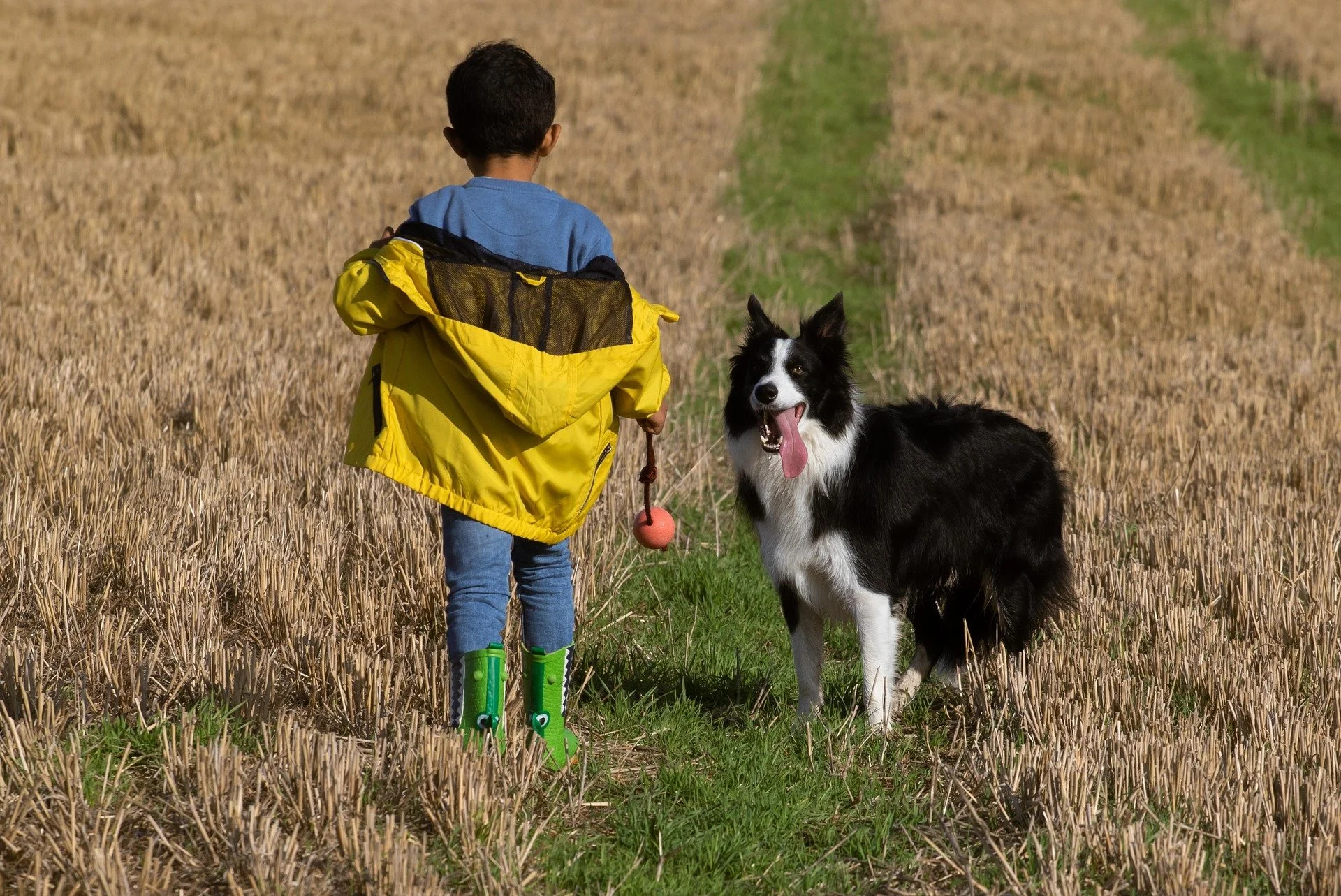The Human-Animal Bond
The human-animal bond is a profound and multifaceted relationship. This bond encompasses the psychological and physical connections between humans and animals, particularly companion animals such as dogs, cats, and horses. Animals can also play a role in therapeutic settings, aiding in the recovery and rehabilitation of patients. SCAS has long recognised the significance of this bond and has dedicated its efforts to greater understanding of the benefits that can accrue from human-animal interactions. By promoting responsible pet ownership and ethical practices, SCAS aims to create a society where the human-animal bond is nurtured and respected.
An Ancient Bond
Archaeological evidence suggests that early humans formed close relationships with animals, as seen in burial sites where humans and animals were interred together. These early bonds were likely based on mutual benefit, with animals providing food, labour, protection and perhaps companionship, while humans offered care and shelter.
Over time, the nature of the human-animal bond evolved, with animals becoming integral members of human societies. In many cultures, animals were revered and considered sacred, playing important roles in religious rituals and mythology. Dogs and cats, especially, have become valued companions and family members.
Benefits of Pets
Research on human-animal interactions remains a relatively new field. Researchers are investigating the potential health benefits associated with human interaction with various animals, ranging from fish and guinea pigs to dogs and cats. While many studies have demonstrated positive effects on healthy child development, physical health, mental health & cognitive function and social capital in communities, the findings have been varied. Interaction with animals has been observed to decrease levels of cortisol, a hormone related to stress, and to lower blood pressure. Additionally, other research has indicated that animals can alleviate loneliness, increase feelings of social support, and boost your mood.
Animal-assisted therapy has been used to support individuals with various conditions, including autism, post-traumatic stress disorder (PTSD), and physical disabilities. The presence of animals in therapeutic environments can motivate patients to engage in activities, improve their mood, and enhance their overall quality of life.
Pets and Healthy Child Development
Interaction with companion animals can benefit child development by reducing stress and anxiety, improving social interactions, and by enhancing motivation, engagement and learning. Children living with dogs are more physically active, they seek out their pets when they are upset, often ranking pets higher than some human relationships within their social network. Teenagers bonded to dogs are less likely to be drawn into gang culture or come to the attention of the police; are less likely to take excess alcohol or get involved with drugs; they do better academically and have more traditional values. These effects may help stabilise neighbourhoods.
Pets and Physical Health
People with pets tend to have better general health and studies in several countries have found they make fewer doctor appointments. Dog owners take more exercise and are more likely to meet national guidelines for physical activity, which is linked with increased fitness, greater ease of performance of everyday activities, improved mood and quality of life, increased body leanness, healthier weight and a 15% reduction in risk of early death.
Large scale studies of cardiovascular effects of living with companion animals have determined that dog owners living alone have a lower risk of death after heart attack (33%) and stroke (27%). These cardioprotective effects are now thought to be due to the elevated levels of the neurotransmitter oxytocin, detected when people are in the presence of dogs. Oxytocin has recently been identified as a key regulator of the cardiovascular system.
The many health benefits of regular physical activity are well documented, and include lower rates of cardiovascular disease, Type II diabetes, depression and certain types of cancer. Dog owners who engage in dog walking are reported to be more likely to meet national guidelines for physical activity. From a public health perspective, promoting dog walking as a means of meeting physical activity guidelines is promising due to the high proportion of individuals who own dogs, the ease and low cost associated with dog walking, and the moderate-intensity physical activity it entails.
Pets and Mental Health & Cognitive Function
Some studies show that pets provide their families with high levels of social support e.g. following adverse life events such as bereavement, and their companionship mitigates against loneliness and depression. This latter effect is of particular importance for those suffering mental ill health and for older people living alone.
People and companion animals can bring each other mutual support as they both age. Older, homebound pet owners have been shown to be better at paying attention, remembering details, and learning from past experiences than those who don’t own pets.
Pets and Healthy Ageing
Behavioural interventions to enhance older adults' physical and psychological health are increasingly used. The human-animal bond, where it is a beneficial relationship between people and animals, plays a crucial role in this. Pet ownership, especially of dogs, is linked to increased physical activity, a lower Body Mass Index, fewer limitations in activities of daily living better, better cardiovascular health, reduced stress, and potential immunity boosts. Owners often require fewer primary care visits, possibly due to overall better health.
Beyond physical health, pets also improve psychological well-being by providing companionship and fostering social interactions. Walking a dog can lead to daily social contacts and a sense of community, which is vital for older adults to avoid isolation. In retirement communities, pets help residents connect, acting as social facilitators.
Pets and Social Connection
Companion animals, particularly dogs, are noted for their role in fostering social connections and contributing to safer, friendlier neighbourhoods with stronger social cohesion.
Animals can facilitate social interactions and create opportunities for community engagement. Dog parks, pet-friendly events, and animal-assisted activities provide spaces for people to share experiences, break down social barriers and foster a sense of connection among individuals who might not otherwise interact.
Welfare and Ethics
While the human-animal bond offers numerous benefits, it also raises important ethical considerations. The welfare of animals must be prioritised to ensure that they are treated with respect and care. SCAS advocates for the humane treatment of animals and promotes guidelines and standards for animal-assisted services. It is essential to recognise that animals are sentient beings with their own needs and rights, and their well-being should be safeguarded in all interactions.
The ethical implications of the human-animal bond also extend to issues such as animal cruelty, neglect, and exploitation. SCAS works to raise awareness of these issues and advocates for policies that protect the welfare of animals. An expanding area of awareness concerns the interrelatedness of child abuse, animal cruelty and family violence. This is termed the Links, and it is essential that those working in health, social care, veterinary practice, police and judiciary have a deep understanding of these issues, recognising key indicators of abuse and be prepared to cross report to relevant agencies.





